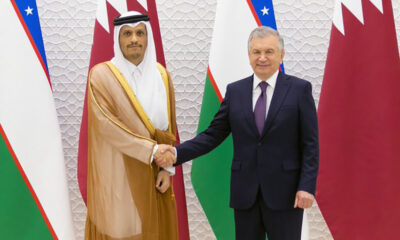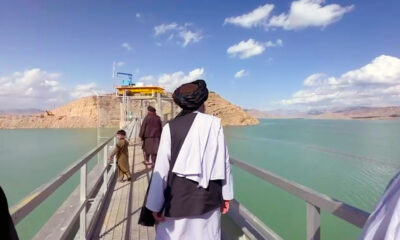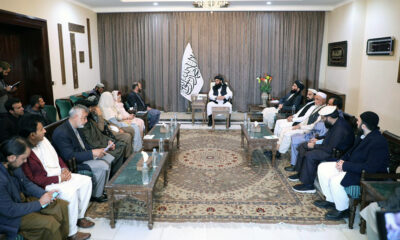Latest News
Islamic Emirate official assures donors aid will be delivered transparently
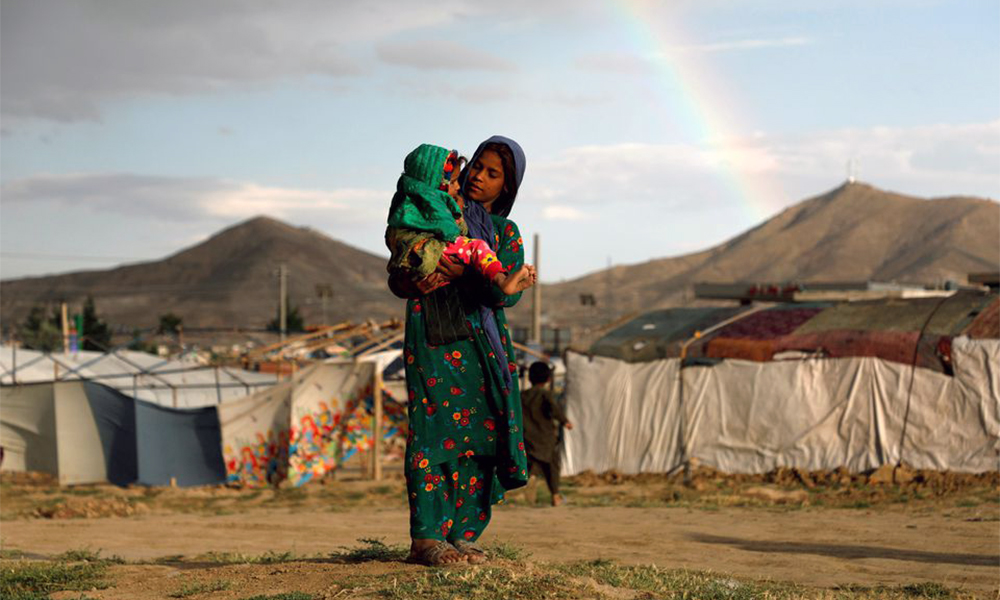
International aid to Afghanistan will be delivered transparently and will not end up in private pockets, an Islamic Emirate of Afghanistan (IEA) official said on Sunday.
In an interview with China’s Global Television Network (CGTN) the deputy head of the Islamic Emirate’s Cultural Commission, Ahmadullah Wasiq, said the Afghan government will coordinate the distribution of aid and will ensure it reaches the people who need it most.
He said a number of ministries and directorates would be involved in overseeing the process and that “the government has discussed this issue after the aid was promised and the government is pondering over how such aid will be received and distributed.”
This comes amid warnings by the foreign community, including the UN Secretary-General Antonio Guterres, of a looming humanitarian crisis and a complete economic collapse unless urgent aid and funding support is given to Afghanistan.
Wasiq also said it was important that Afghans receive aid regardless of the channels of distribution.
“Such aid will work towards rebuilding the country and bringing prosperity in the lives of our people; therefore, it is not important whether this aid will be received by the government or it will be distributed through NGOs or UN agencies.
“The good news, however, is that this aid will not be going to private pockets as was the case in the previous regime.
“If the aid is delivered to the government or if the aid will be delivered through NGOs, the government in both cases will be closely coordinating the process,” said Wasiq.
He said the aid distribution will reach those areas that need help most.
“We assure both our people and the world that the aid will reach where they are supposed to reach and will not reach private pockets. We appreciate the efforts of all sides who want to help the people of Afghanistan and who want to bring a positive change in the current situation, and we support them,” said Wasiq.
“We also expect the helping countries to convince other nations of the world as well, because the Islamic Emirate has assured the rest of the world that Afghanistan will be an independent country and this country will not be used against any other country in the world,” he said.
Latest News
Uzbek and Qatari leaders discuss Trans-Afghan Railway project
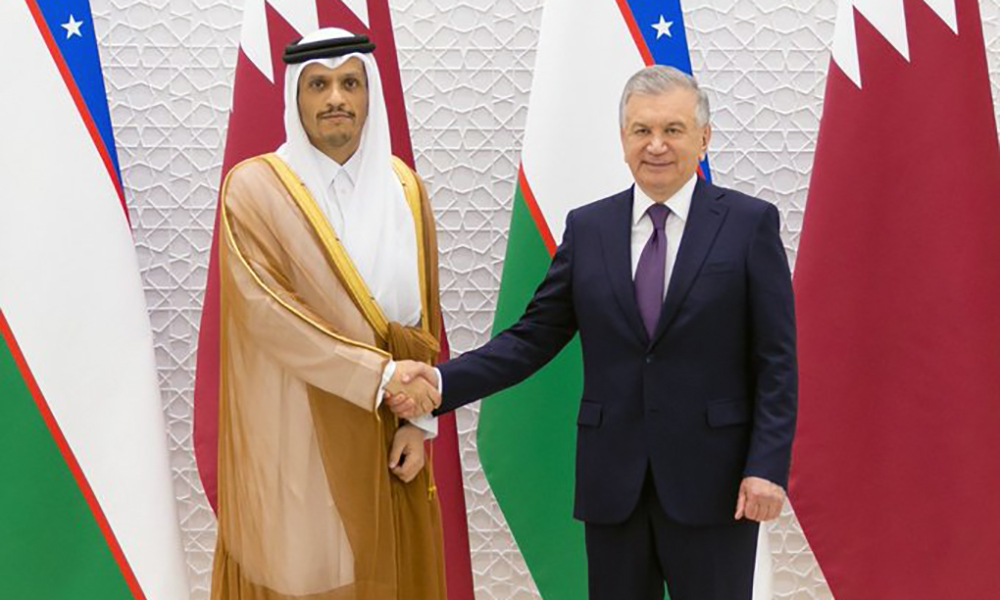
Uzbekistan’s President Shavkat Mirziyoyev on Monday met with Qatar’s Prime Minister and Foreign Minister Sheikh Mohammed bin Abdulrahman Al Thani for talks on a number of issues including the Trans-Afghan Railway project.
The two leaders also discussed bilateral trade issues, strengthening of relations and regional matters, including the escalating situation in the Middle East.
In October 2023, Uzbekistan Railways JSC presented the Trans-Afghan Railway project to Qatar’s Ministry of Transport.
Subsequently, deliberations were held on Qatar’s involvement in the project’s execution.
In February 2021, Uzbekistan, Afghanistan, and Pakistan signed a roadmap for the Termez-Mazar-i-Sharif-Kabul-Peshawar railway construction.
The envisioned transport corridor, estimated at approximately $5 billion, aims to connect Europe, Russia, Uzbekistan, Afghanistan, Pakistan, India, and Southeast Asian nations, boasting a transit capacity of up to 20 million tons of cargo.
Latest News
Pakistani police give Afghans in Balochistan one day to leave
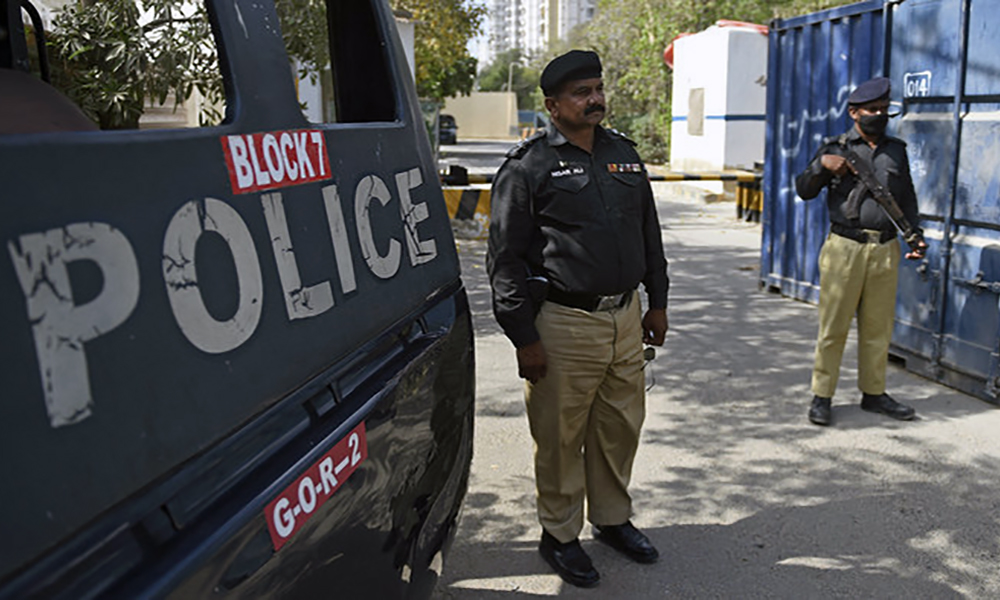
Afghan migrants were reportedly warned by Balochistan officials, in Pakistan, on Monday to voluntarily leave the country by Tuesday, March 16.
Local media reports state this applies to all Afghans in the province, even documented refugees.
Afghans in Balochistan said on Monday that police told them they would be forcibly evicted if they had not vacated their villages by 8am on Tuesday.
Islamabad was expected to start the second phase of forced deportations of Afghan refugees on Monday, April 15.
Officials said this applies to about 850,000 Afghans – many of whom have lived in Pakistan for decades.
The Afghan caretaker government and UN agencies estimate that more than half a million people have been deported from Pakistan or voluntarily returned to Afghanistan in less than six months.
Latest News
Baradar visits flood-hit areas of Uruzgan province
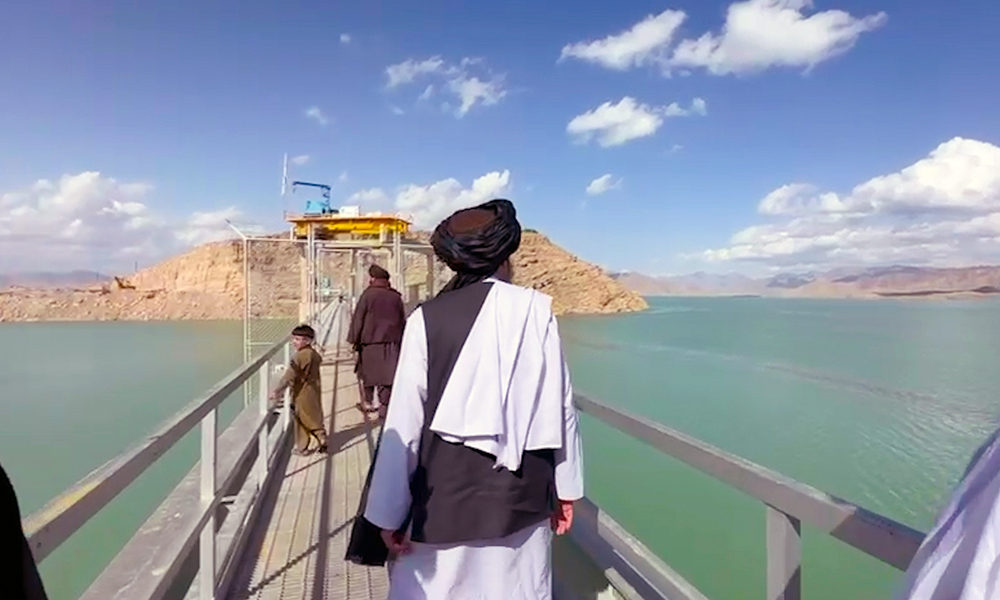
Mullah Abdul Ghani Baradar, the Deputy Prime Minister for Economic Affairs, visited flood-hit areas of Uruzgan province on Monday, April 15th, where he met with local officials and members of the public.
During his visit, Baradar assessed the impact of the floods and ordered necessary assistance to be provided.
He assured the people of the government’s commitment to supporting those affected by the disaster.
Emphasizing the importance of effective governance, Baradar urged provincial officials to prioritize the welfare of vulnerable citizens and underscored the sacrifices made by the people in establishing the Islamic system.
He also said the people had a right to a peaceful life under the Islamic Emirate.
Baradar also said the government had an obligation to promptly address the needs of citizens across the country in times of crises.
Residents of Uruzgan province in turn expressed their satisfaction with the responsiveness of civil and military authorities under the Islamic Emirate. They lauded the government’s intervention during times of need and expressed optimism about the elimination of hatred, ethnic biases, and hypocrisy under Islamic Emirate, heralding a new era of unity and stability for Afghanistan.
Baradar also visited Kajaki Dam in neighboring Helmand province on Monday where he praised officials for work done on the dam.
He said the Kajaki Dam project was of national value and vital to the well-being of the country.
Baradar said that due to recent droughts and the lack of water in dams, the level of electricity production had also decreased, but that this year, thanks to heavy rains in the country, the water levels had increased and many of the dams, including Kajaki Dam are overflowing.
He said this will boost harvests this year and that electricity production in the country will also increase.
Kajaki Dam is one of the largest dams in the country and was was built in the Kajaki district of Helmand province to control seasonal floods on the Helmand River, irrigate agricultural lands and generate electricity.
-

 5 days ago
5 days agoSaar: Concerns over drug trafficking from Afghanistan discussed
-

 Tahawol5 days ago
Tahawol5 days agoTahawol: Concerns over continuation of acting government discussed
-

 Regional3 days ago
Regional3 days agoIndian foreign ministry advises against travel to Iran, Israel
-
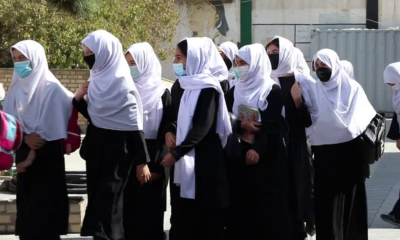
 Latest News5 days ago
Latest News5 days agoBanning girls’ education has caused economic issues: private school officials
-

 Latest News4 days ago
Latest News4 days agoAfghanistan withdrawal probe sparks anxiety within Biden administration: US’s McCaul
-

 Latest News3 days ago
Latest News3 days agoTop former US general claims Daesh-Khorasan is ‘on the upswing’
-
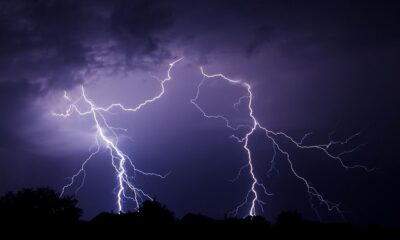
 Latest News3 days ago
Latest News3 days agoLightning strikes in Helmand kill one, injure three
-

 Science & Technology4 days ago
Science & Technology4 days agoChina launch of relay satellite Queqiao-2 for lunar probe mission successful


